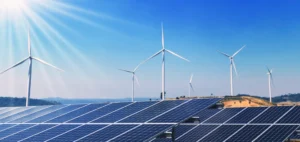Ukrainian Energy Minister Herman Halushchenko announced Friday that the country can resume exporting electricity to the European Union after a six-month pause due to repeated attacks by Russia.
Successful reconstruction of Ukraine’s electricity infrastructure: exports to the EU resume
Halushchenko credited the success of repairs made in recent months for the resumption of exports, indicating that the system has been operating normally for almost two months. Ukraine halted exports to the EU, its main export market, in October 2022 following Russian strikes on energy infrastructure.
“The hardest part of the winter is over,” Halushchenko said in a statement on the ministry’s website. “The next step is to resume electricity exports, which will allow us to attract additional financial resources for the necessary reconstruction of destroyed and damaged electricity infrastructure.”
Halushchenko expresses his gratitude to the engineers and international partners who worked tirelessly to repair the system, calling their efforts “titanic work.” He also noted that he had signed an executive document allowing the resumption of electricity exports in light of the domestic supply surplus. Ukraine is allowed to export up to 400 megawatts at any time to the EU.
Resumption of electricity exports: a ray of hope for ailing Ukraine
The resumption of electricity exports is a welcome relief for Ukraine, which had hoped to generate 1.5 billion euros ($1.64 billion) in electricity exports to the EU by the end of 2022. However, Halushchenko warned that electricity exports will only continue if Ukrainian consumers are properly supplied with electricity and may be suspended if the situation changes.
Thus, the Minister of Energy of Ukraine announces that the country can resume the export of electricity to the European Union after a six-month pause due to repeated attacks by Russia. This recovery is the result of successful repairs to the energy infrastructure. It allows Ukraine to attract additional financial resources for the reconstruction of damaged infrastructure.
Although electricity exports are set to continue, they may be suspended if Ukrainian consumers are not properly supplied with electricity.






















